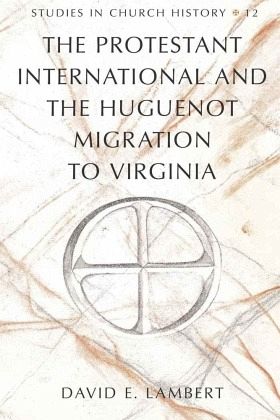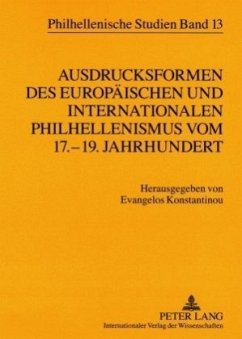
The Protestant International and the Huguenot Migration to Virginia
Versandkostenfrei!
Versandfertig in 6-10 Tagen
100,00 €
inkl. MwSt.

PAYBACK Punkte
0 °P sammeln!
In 1700, King William III assigned Charles de Sailly to accompany Huguenot refugees to Manakin Town on the Virginia frontier. The existing explanation for why this migration was necessary is overly simplistic and seriously conflated. Based largely on English-language sources with an English Atlantic focus, it contends that King William III, grateful to the French Protestant refugees who helped him invade England during the Glorious Revolution (1688) and win victory in Ireland (1691), rewarded these refugees by granting them 10,000 acres in Virginia on which to settle. Using French-language so...
In 1700, King William III assigned Charles de Sailly to accompany Huguenot refugees to Manakin Town on the Virginia frontier. The existing explanation for why this migration was necessary is overly simplistic and seriously conflated. Based largely on English-language sources with an English Atlantic focus, it contends that King William III, grateful to the French Protestant refugees who helped him invade England during the Glorious Revolution (1688) and win victory in Ireland (1691), rewarded these refugees by granting them 10,000 acres in Virginia on which to settle.
Using French-language sources and a wider, more European focus than existing interpretations, this book offers an alternative explanation. It delineates a Huguenot refugee resettlement network within a «Protestant International», highlighting the patronage of both King William himself and his valued Huguenot associate, Henri de Ruvigny (Lord Galway). By 1700, King William was politically battered by the interwoven pressures of an English reaction against his high-profile foreign favorites (Galway among them) and the Irish land grants he had awarded to close colleagues (to Galway and others). This book asserts that King William and Lord Galway sponsored the Manakin Town migration to provide an alternate location for Huguenot military refugees in the worst-case scenario that they might lose their Irish refuge.
Using French-language sources and a wider, more European focus than existing interpretations, this book offers an alternative explanation. It delineates a Huguenot refugee resettlement network within a «Protestant International», highlighting the patronage of both King William himself and his valued Huguenot associate, Henri de Ruvigny (Lord Galway). By 1700, King William was politically battered by the interwoven pressures of an English reaction against his high-profile foreign favorites (Galway among them) and the Irish land grants he had awarded to close colleagues (to Galway and others). This book asserts that King William and Lord Galway sponsored the Manakin Town migration to provide an alternate location for Huguenot military refugees in the worst-case scenario that they might lose their Irish refuge.












